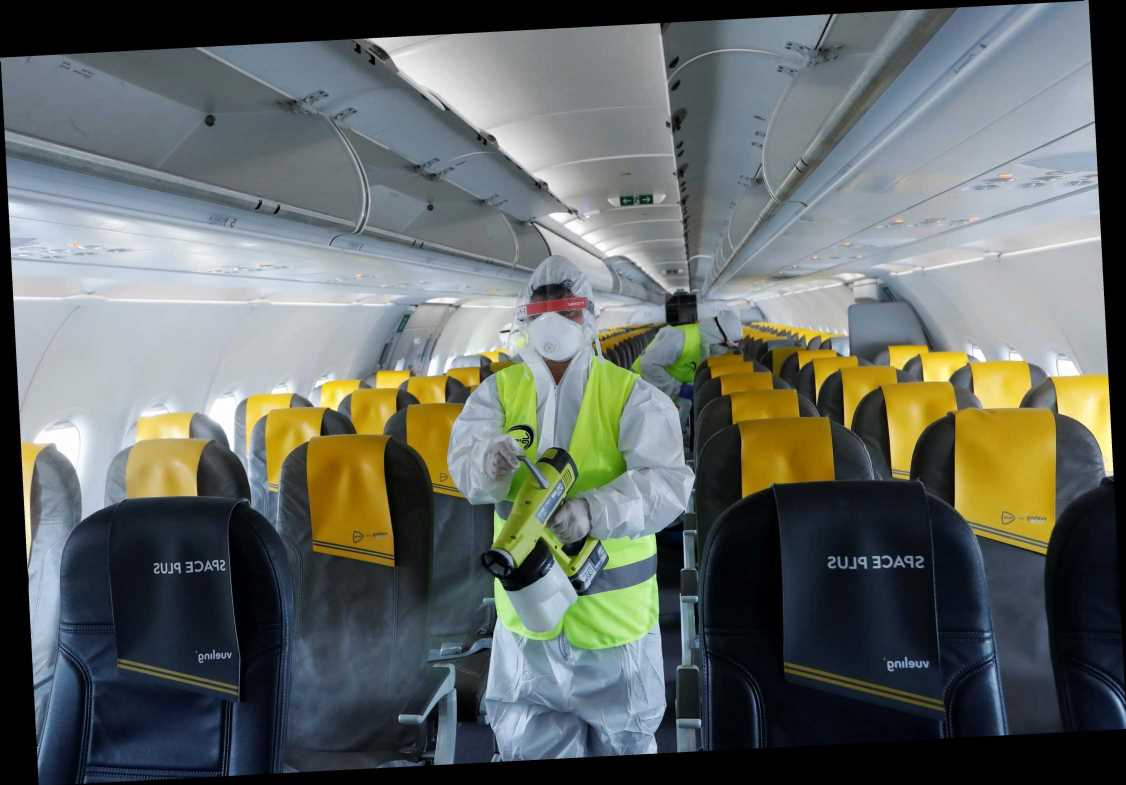BRIT holidaymakers flying from a limited number of 'clean' airports will be able to enter Europe without having to quarantine or be tested for coronavirus, it's been reported.
A 'blacklist' of 13 UK airports has been drawn up by the European Aviation Safety Agency (Easa) which is an EU organisation.
It marks out airports in areas with the highest coronavirus infection rates, reports The Times.
And this raises the possibility that tourists could fly out of some UK airports and avoid testing and quarantine at their destination.
Airports not on the Easa list include Edinburgh — the sixth busiest airport in Britain — as well as Belfast, Bristol, Aberdeen, London Southend, Southampton and Cardiff.
Heathrow, Gatwick, Luton, Stansted, Manchester, Birmingham and Glasgow are on the blacklist of 13 airports which will be updated regularly.
A global list drawn up by the Easa includes airports in 23 American states, those in the Île de France region around Paris, Lombardy in northern Italy and airports in Catalonia and Madrid in Spain.
Spains want to welcome back all tourists as soon as possible and will receive visitors from July 1.
It is operating a pilot scheme during the last two weeks of June involving tourists from mostly Germany to the Canary and Balearic island and a tracing app will be used.
Greece's tourism minister Harry Theoharis yesterday said the current restrictions on travellers from most UK airports means it would be difficult for the majority of holidaymakers from Britain wanting to take a trip to the European country.
Travellers from blacklisted airports will face a testing and quarantine arrangement when arriving in Greece until the UK's coronavirus situation improves, he confirmed.
Travellers will be forced to stay in a designated hotel for a few days while awaiting the result.
Negative tests will result in a seven day self-isolation, while a positive test results in a 14-day quarantine which is supervised.
It's thought these measures will be adopted by other European countries.
Mr Theoharis told BBC Radio 4's Today programme: "For the rest of the airports, testing is mandatory and for a certain amount of days you wait for the test results.
"If it is a negative result, then it is effectively a self-imposed quarantine of seven days but you can go ahead to your destination.
"If, however, it is a positive result then it is a supervised quarantine for longer than seven days."
'High risk' airports
- Heathrow
- Gatwick
- Stansted
- London City
- Luton
- Birmingham,
- Doncaster Sheffield
- East Midlands
- Leeds Bradford
- Liverpool John Lennon
- Manchester
- Newcastle
- Glasgow
He added: "It does mean that there is an inconvenience in the first few days.
Brits will also need to quarantine for two weeks when returning to the UK from Monday.
Travellers arriving in Britain from Monday will have to quarantine themselves for two weeks or potentially face a £1,000 fine.
'Low risk' airports
- Southampton
- Southend
- Bournemouth
- Bristol
- Carlisle
- Durham Tees Valley
- Edinburgh
- Aberdeen
- Inverness
- Cardiff
- Belfast
- Belfast City
- City of Derry
It means Brits looking to go away this summer on their holidays face having to two take an extra two weeks off work.
Tourism bosses have warned it could destroy the industry, as critics continue to push for so-called "air-bridges" – limited links between the UK and low-risk countries.
Ms Patel did leave the door open for changes to the plan, with some hoping the 14-day isolation could be canned by the end of June.
CORONAVIRUS CRISIS – STAY IN THE KNOW
Don't miss the latest news and figures – and essential advice for you and your family.
To receive The Sun's Coronavirus newsletter in your inbox every tea time, sign up here.
To follow us on Facebook, simply 'Like' our Coronavirus page.
Get Britain's best-selling newspaper delivered to your smartphone or tablet each day – find out more.
Source: Read Full Article




